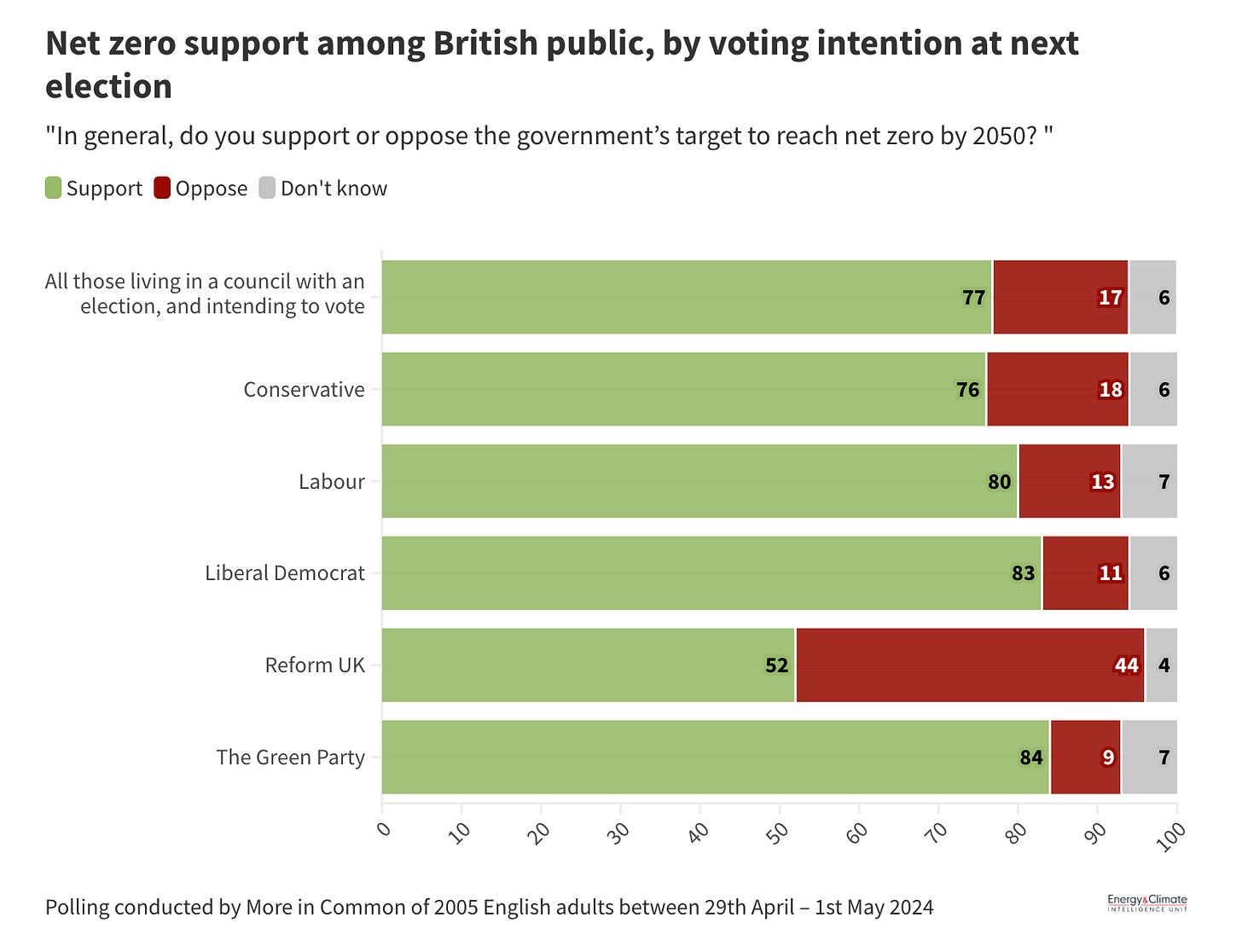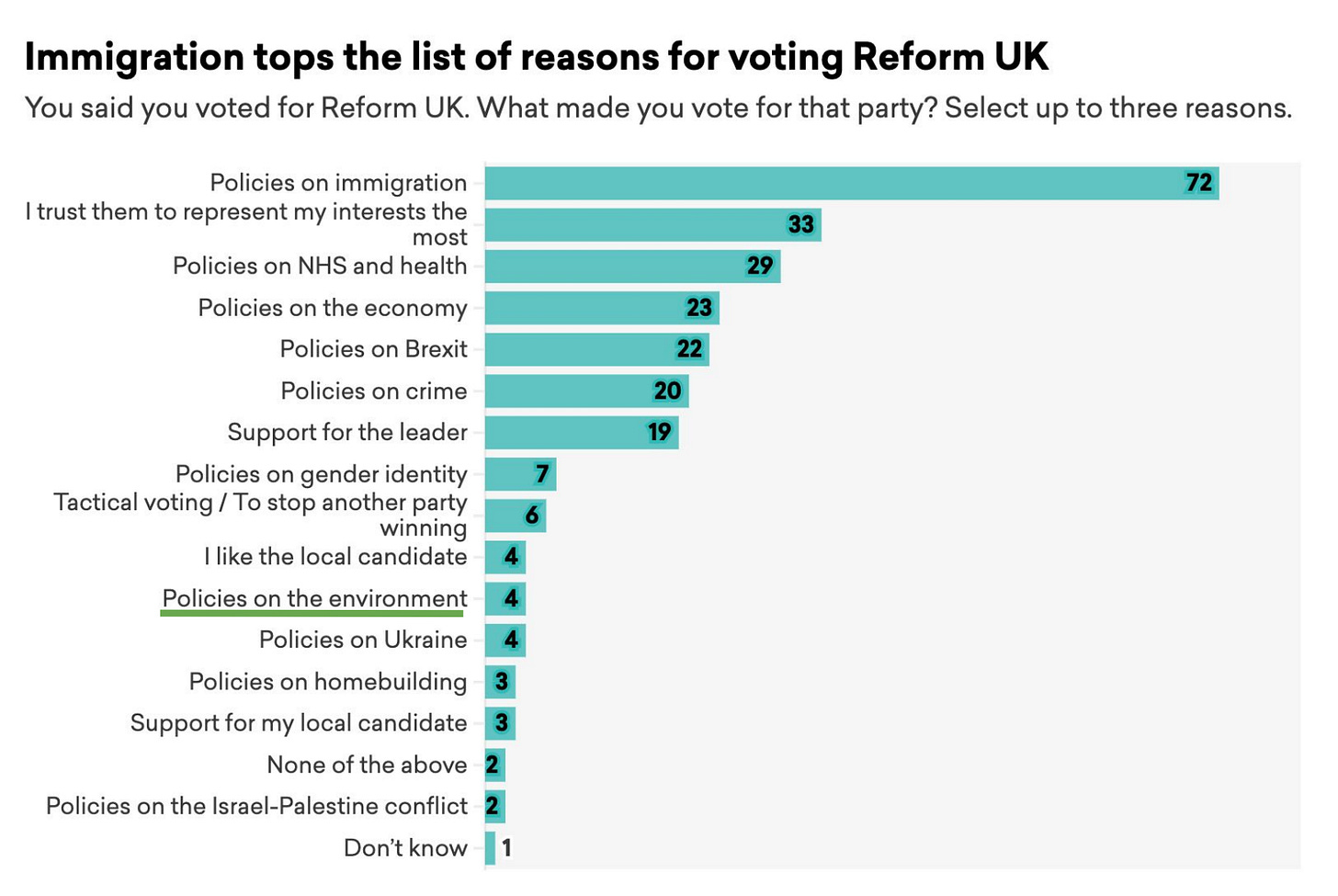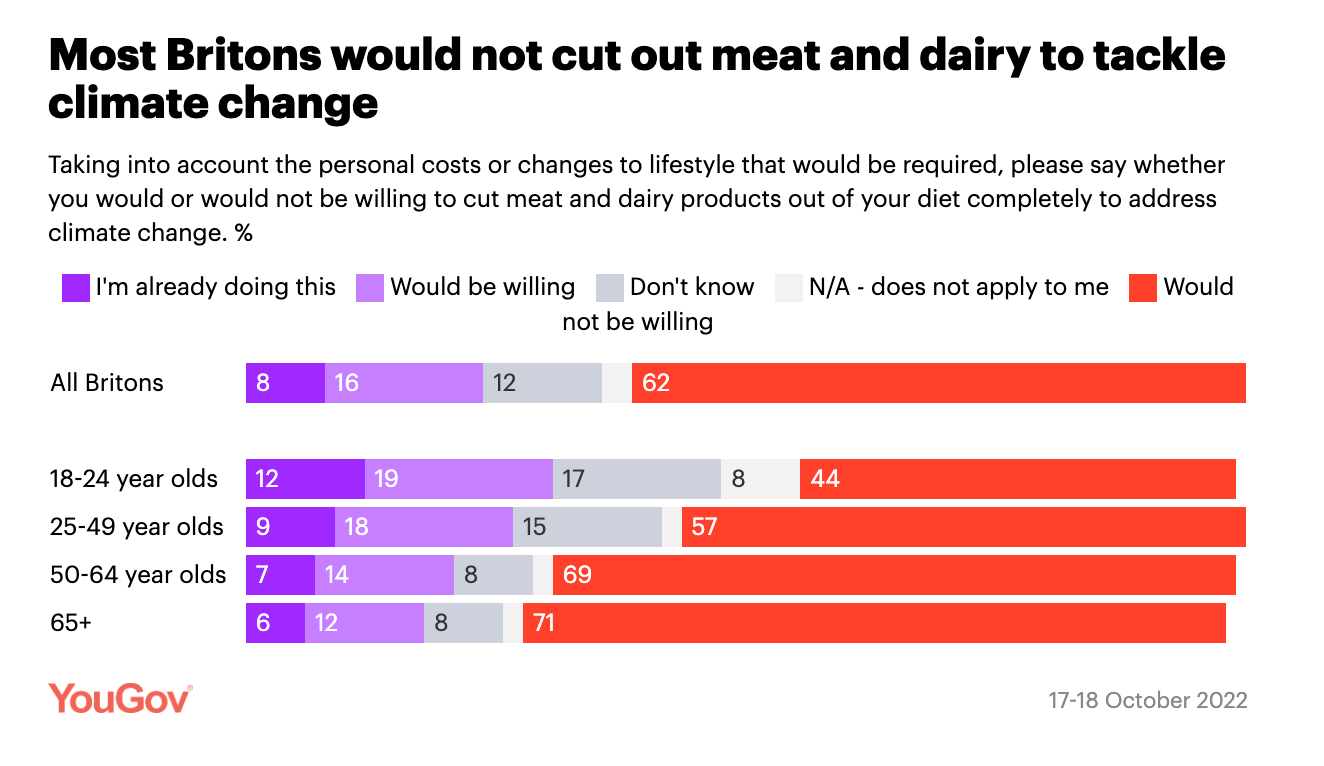Kemi Badenoch scorns her own voters, seeks new ones
Tory leader embarks on a high-risk, low-reward strategy
If the first rule of newsletters is: don’t put the words ‘European Union’ in the subject line, the second is: or ‘climate change’. Readers appreciate both are important, but they are also kind of a bureaucratic and technological drag. So please forgive me for that little bit of misdirection above. I promise to tread lightly.
Kemi Badenoch is set to make a speech today in which she will call the government’s target of achieving net zero emissions by 2050 a “fantasy” and “impossible”. In doing so, the Conservative leader is aligning her party with Reform UK, and formally breaking the admittedly fraying cross-party consensus on climate change.
The thinking behind this pronouncement has the subtlety of an MRP1 projection four years out from a general election. Reform UK, which is consistently polling equal to or even slightly ahead of the Tories, is committed to scrapping the target, and Badenoch wants to attract those voters. Yet this represents a high-risk, low-reward strategy.
Polling by More in Common last year found that voters supported net zero by a margin of 77% to 17%. Unsurprisingly, this was underwritten by large majorities amongst Labour, Liberal Democrat and Green voters. But just look at the graph below: Conservatives were not far behind. Even a narrow majority of Reform voters backed it.
Moreover, there are reasons to be sceptical that Badenoch’s new approach will peel off Reform voters. Not least because net zero does not appear to be all that important to them. When asked to provide up to three reasons why they voted Reform, just 4% of respondents cited the party’s policies on the environment. For reference, 72% selected immigration.
Nor is this likely to hurt Labour. In fact, it has the potential to be rather helpful to a governing party that, on the domestic front, has been struggling mightily and has relatively few issues that unite its coalition. Labour’s voters are divided on how to tackle salient challenges such as immigration and the NHS. But climate change is one that binds them together.
The other party that will be raising a glass this morning is the Liberal Democrats. Because I became politically aware in the mid-2000s, I am preternaturally disposed to assume that there must be scores of Labour-Lib Dem marginals, particularly given that the parties won 483 seats between them at the last election. But, of course, there aren’t.
Instead, there are plenty of Tory-Lib Dem marginals. Consequently, the Conservatives’ path back to power runs through dots of orange/yellow.2 Just look where the Lib Dems picked up their seats in July: six in Surrey, five in Sussex and four in Oxfordshire. Not to mention storming back with 11 in Devon and Somerset3.
There is, in my view, a readymade position on climate change, perfect for the easy choices of opposition. It is to be where the British public are. Voters like the idea of net zero, Great British Energy and offshore wind. But they are somewhat less keen on anything that actually impinges on their way of life. Ask them to eat less meat or fly less often and they laugh in your face.
Instead, Badenoch is continuing down the path trod by Rishi Sunak, who mistakenly interpreted the Tories’ surprise victory at the 2023 Uxbridge and South Ruislip by-election as a repudiation of net zero, though he stopped short of ditching the target.
One final point. In yesterday’s edition, I remarked upon the error companies often make, in spending too much time talking about features and not enough about benefits. Politicians do it too. The features of net zero may include wind farms, electric vehicles and loft insulation. But the benefits? A habitable planet, cleaner air and energy bills that are not determined by foreign despots.
If the Lib Dems themselves don’t know whether their party colour is orange or yellow, what chance does that leave the rest of us? Yes, I know.
These stats are thanks to Professor Peter Sloman







If you take a look at some recent breaking news, this policy is suicidal. A Bristol-based world leader in its field recently sank a subsea turbine in Japan. It will generate 1 GB of electricity. Back here, the Pentland Firth has some of the most powerful ocean currents, potentially providing half the power for Scotland. It's estimated that it would take 200,000 such turbines to achieve net zero on its own and that means a lot of jobs for the UK in a sector where we are world leaders. Truly, Labour must raise more than one glass for Badenoch's speech. In addition, a Sheffield business in collaboration with Sheffield University will soon be rolling out flexible ultrathin solar panels on an industrial scale. Not only will that create jobs it will resolve the raging debate about solar farms and growing food. Wonder if Labour has the nouse to manifest one of their ambitions for the UK to become net zero champions or let this opportunity slip away. The case of Frarage and Bedenoch is a case of ill-informed politicians looking for votes when they are already in plain sight. Nothing new there. I have no positions or financial stake in any company mentioned here.
https://www.impactlab.com/2025/02/24/japans-renewable-energy-leap-proteus-marine-unveils-first-megawatt-scale-tidal-turbine/
https://www.powerroll.solar/post/power-roll-shapes-future-of-advanced-manufacturing-for-solar